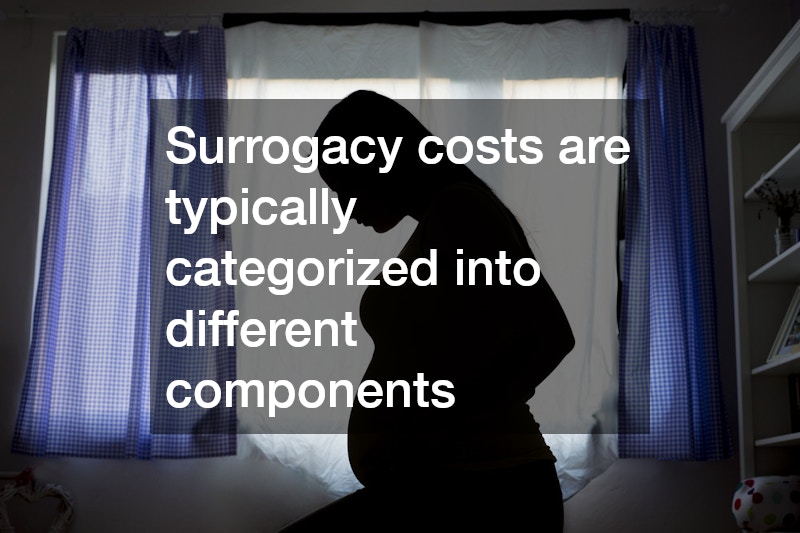Surrogacy is a complex journey, both emotionally and financially, that many individuals and couples embark on when seeking to expand their families. A primary concern for anyone considering surrogacy is understanding the surrogate mother cost and how it breaks down. The total cost of surrogacy can vary significantly depending on numerous factors, including the surrogate’s location, medical needs, and the services provided by the surrogacy agency managing the process.
On average, the overall cost of surrogacy in the United States ranges from $90,000 to $150,000. However, these figures can increase if additional medical interventions, travel expenses, or legal complexities arise during the process.
Being aware of the full range of potential costs from the outset can help intended parents budget more effectively and prepare for any unexpected financial challenges that may occur along the way.
Surrogacy costs are typically categorized into different components, such as agency fees, legal fees, medical expenses, and compensation for the surrogate mother. Transparency in these categories helps intended parents to navigate their financial responsibilities with greater assurance. As intended parents explore their options, they should carefully review contracts and speak with financial advisors to comprehend all aspects of surrogate mother cost and avoid unforeseen expenses.
The Division of Surrogacy Costs: Detailed Breakdown
The overall surrogate mother cost is comprised of several distinct elements that collectively form the complete surrogacy financial package. Firstly, agency fees are a significant part of the total expense, covering the costs related to matching services, support, and coordination throughout the surrogacy process. These fees can range dramatically, often accounting for $15,000 to $50,000 of the overall budget, depending on the services and reputation of the agency selected.
Legal fees are another crucial factor, as navigating the legal intricacies of surrogacy requires specialized expertise. Intended parents should expect to pay between $10,000 and $15,000 to secure the necessary legal agreements and ensure all parties’ rights and responsibilities are clearly defined and protected. These agreements typically include the drafting and reviewing of contracts between the intended parents and the surrogate, as well as finalizing the parentage order.
Comprehensive medical expenses also comprise a considerable portion of the surrogate mother cost. Medical treatments cover IVF procedures, prenatal care, delivery, and any additional medical interventions required throughout the surrogate’s pregnancy. This segment of costs can average between $20,000 and $40,000 but can escalate if complications arise, necessitating more intensive medical care or interventions.
Compensation and Financial Support for the Surrogate Mother
Compensation for the surrogate mother is a significant element in the surrogate mother cost and reflects both appreciation for her invaluable role and the fair coverage of her time, effort, and inconvenience. In the United States, base compensation varies but typically ranges from $30,000 to $50,000. This compensation serves as a direct financial acknowledgment of the profound commitment the surrogate makes.
Beyond base compensation, additional financial support is provided to cover specific costs the surrogate may incur during the pregnancy. These expenses include maternity clothing, travel for medical appointments, and insurance-related costs if additional or special coverage is needed. This supplemental support ensures that the surrogate is not financially burdened due to the medical and lifestyle adjustments required during the pregnancy.
It is crucial for intended parents to work with their agency and legal counsel to establish clear financial agreements with the surrogate. Ensuring clarity in these financial arrangements helps foster a positive, transparent relationship among all parties involved. This transparency is essential for maintaining trust and ensuring that the surrogate feels respected and supported throughout the journey.
Additional Factors Influencing Surrogacy Costs
Beyond the core components of agency, legal, and medical fees, several additional factors can influence the overall surrogate mother cost. Costs can fluctuate based on geographic location, as surrogacy laws and living expenses vary from state to state and country to country. More expensive urban areas often result in higher surrogacy costs compared to rural or less populous regions.
Furthermore, the need for specialized medical procedures or interventions can impact the cost, especially if multiple IVF cycles are necessary, or if there are complications requiring additional medical treatment. Insurance coverage, or the lack thereof, also plays a crucial role in determining the final cost. Intended parents must ensure they understand their insurance policy limits and any potential out-of-pocket expenses for which they will be responsible.
Lastly, intended parents choosing international surrogacy might encounter varied expenses based on the chosen country’s specific legal, medical, and logistical requirements. While international surrogacy may offer lower base costs, it often includes complex legal and logistical challenges. Being mindful of these factors allows intended parents to better anticipate and budget for the full scope of the surrogate mother cost.




